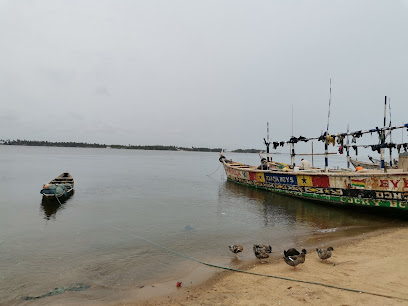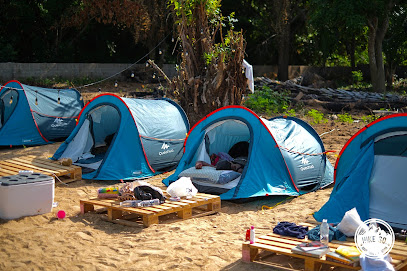
Paradise by the Volta: Exploring Ada Foah
Nestled where the Volta River meets the Atlantic Ocean, Ada Foah is a hidden gem in Ghana. This serene town offers a perfect blend of natural beauty, rich history, and vibrant culture. The pristine beaches are perfect for sunbathing and water sports, while the Volta River is ideal for boat trips and fishing. The town's history is deeply rooted in the colonial era, with remnants of old forts and trading posts. Ada Foah is also famous for its lively festivals, where you can experience traditional music, dance, and cuisine. The local markets are a treasure trove of handmade crafts and fresh produce, making it a great place to pick up unique souvenirs. For nature lovers, the nearby Songor Lagoon is a must-visit. This protected area is home to a variety of bird species and offers stunning views of the mangroves and waterways. Whether you're looking to relax or explore, Ada Foah's charm and beauty are sure to captivate you.
Local tips in Ada Foah
- Visit during the dry season (November to March) for the best weather and outdoor activities.
- Take a boat trip on the Volta River for stunning views and a chance to see local wildlife.
- Explore the local markets for handmade crafts and fresh produce.
- Don't miss the Songor Lagoon for bird watching and beautiful natural scenery.
- Attend a local festival to experience traditional music, dance, and cuisine.
Paradise by the Volta: Exploring Ada Foah
Nestled where the Volta River meets the Atlantic Ocean, Ada Foah is a hidden gem in Ghana. This serene town offers a perfect blend of natural beauty, rich history, and vibrant culture. The pristine beaches are perfect for sunbathing and water sports, while the Volta River is ideal for boat trips and fishing. The town's history is deeply rooted in the colonial era, with remnants of old forts and trading posts. Ada Foah is also famous for its lively festivals, where you can experience traditional music, dance, and cuisine. The local markets are a treasure trove of handmade crafts and fresh produce, making it a great place to pick up unique souvenirs. For nature lovers, the nearby Songor Lagoon is a must-visit. This protected area is home to a variety of bird species and offers stunning views of the mangroves and waterways. Whether you're looking to relax or explore, Ada Foah's charm and beauty are sure to captivate you.
When is the best time to go to Ada Foah?
Iconic landmarks you can’t miss
Songor Lagoon Protected Area
Discover Ghana's coastal paradise at Songor Lagoon: a haven for birdwatchers, nature lovers, and cultural explorers seeking tranquility and rich biodiversity.
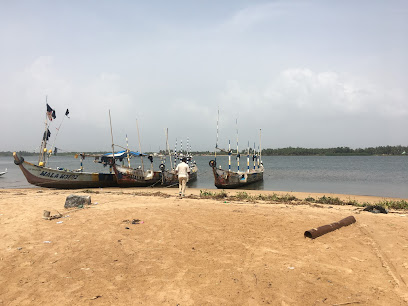
Treasure Island Ghana
Discover a unique blend of relaxation and adventure at Treasure Island Ghana, where the Volta River meets the Atlantic Ocean, offering pristine beaches, water sports, and cultural immersion in Ada Foah.
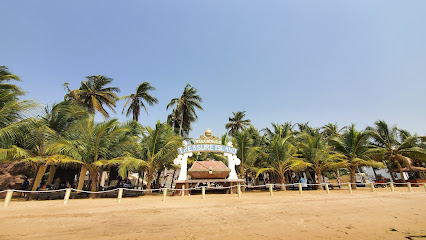
Maks Resort Ada
Experience tranquility and adventure at Maks Resort Ada, where luxury meets the stunning beauty of Ghana's coastline in Big Ada.
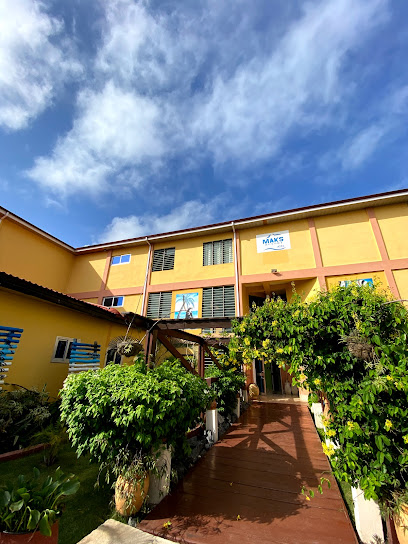
NKYINKYIM MUSEUM
Discover Ghana's Nkyinkyim Museum in Ada Foah: An immersive journey through African history, art, and culture, fostering healing and celebrating resilience through powerful sculptures and storytelling.
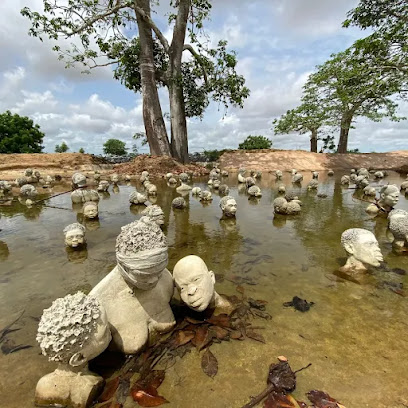
Ezime Guesthouse and Pizzeria
Experience a unique blend of comfort and local flavor at Ezime Guesthouse and Pizzeria in Ada Foah, Ghana, where relaxation meets culinary delight.
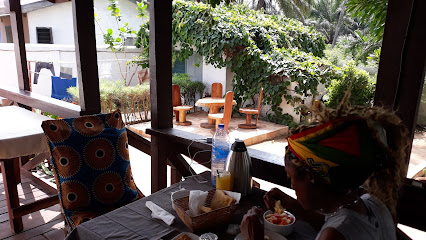
Maranatha Beach Camp
Experience the charm of Maranatha Beach Camp in Ada Foah, Ghana - a perfect blend of relaxation, adventure, and local culture awaits you.
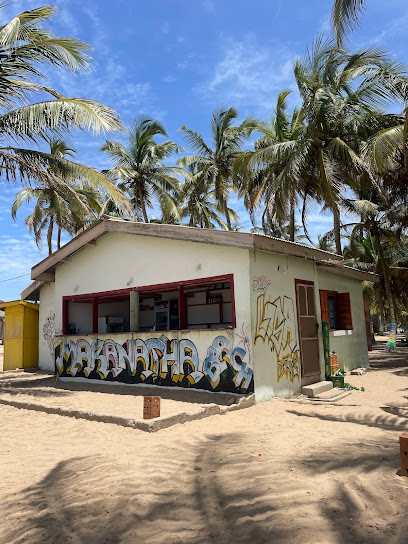
Treasure island departure
Experience tranquil beauty and luxurious comfort at Tsarley Korpey Beach Resort near Ada Foah, Ghana, where the Volta River meets the Atlantic Ocean, offering a unique blend of relaxation and adventure.
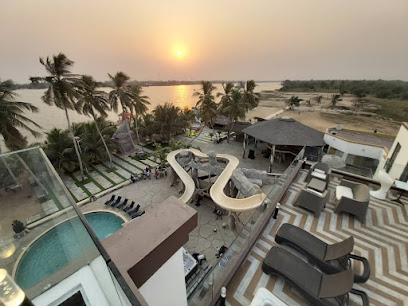
Kumoji Guest House
Experience the charm of Ada Foah at Kumoji Guest House, your cozy retreat by the beach in Ghana's beautiful coastal region.

Camp Tsatse Resort
Experience ultimate relaxation and adventure at Camp Tsatse Resort in Ada Foah, Ghana, where nature meets comfort and hospitality.
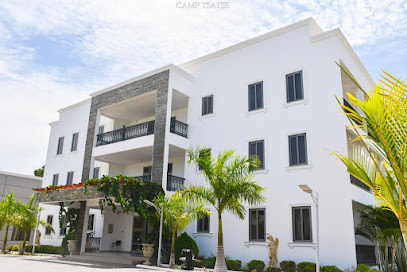
Treasure Island, Ada.
Discover Treasure Island in Ada Foah: A serene coastal escape where the Volta River meets the Atlantic, offering relaxation, adventure, and Ghanaian hospitality.
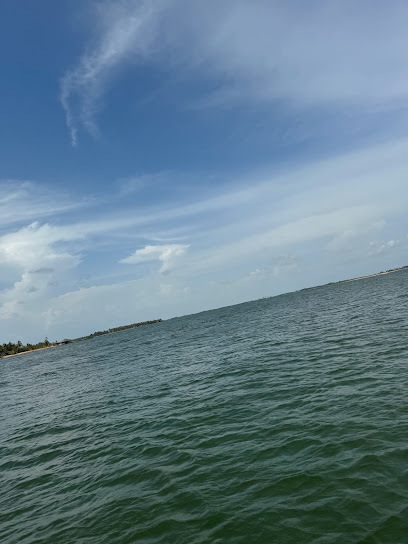
Ada-Foah
Experience the thrill of water sports and the serenity of nature in Ada-Foah, Ghana's ultimate destination for adventure and relaxation.
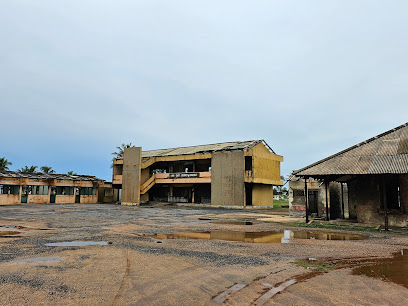
DREAMLAND BEACH RESORT
Experience the tranquil beauty of Dreamland Beach Resort in Ada Foah, Ghana, where stunning ocean views and local culture await every traveler.
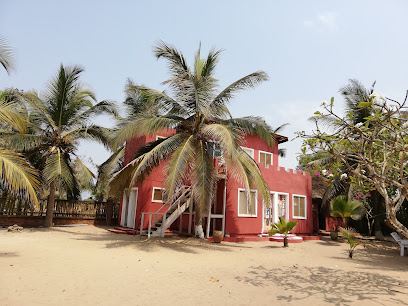
Y's Lounge
Experience Ada Foah's vibrant nightlife at Y's Lounge, offering delicious grilled cuisine, refreshing cocktails, and a lively atmosphere for unforgettable evenings and culinary adventures.
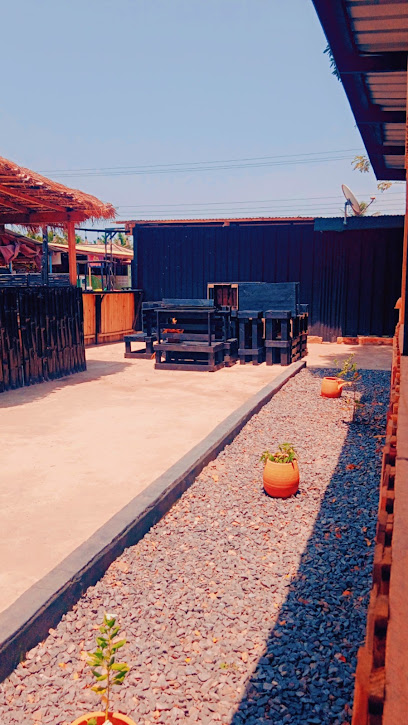
Volta Estuary, Ada Foah
Discover the breathtaking Volta Estuary in Ada Foah, where the river meets the sea, offering stunning landscapes, rich culture, and thrilling water adventures in Ghana.
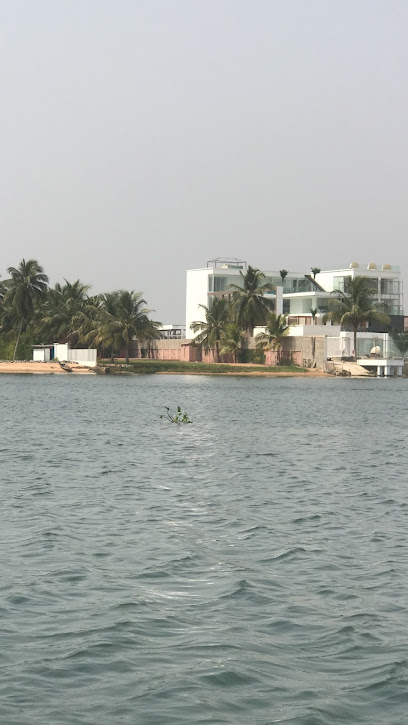
Fort Kongenstein
Explore Fort Kongenstein in Ada Foah, Ghana - a historical fort offering stunning coastal views and insights into the country's colonial past.
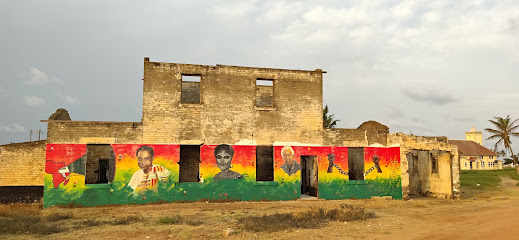
Unmissable attractions to see
Essential places to dine
Aqua Safari Resort
Experience luxury amidst nature at Aqua Safari Resort – your gateway to adventure and relaxation on the stunning Volta River.

Azmera Restaurant
Savor authentic West African cuisine at Azmera Restaurant in Accra - a buffet experience rich in Ghanaian flavors.
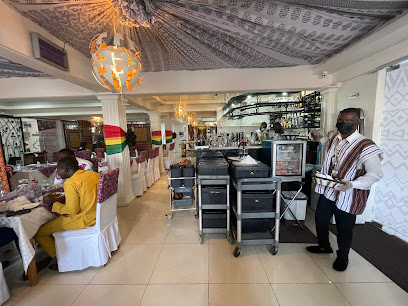
Treasure Island Ghana
Experience ultimate relaxation at Treasure Island Ghana - where luxury meets nature on Ada Foah's pristine coastline.
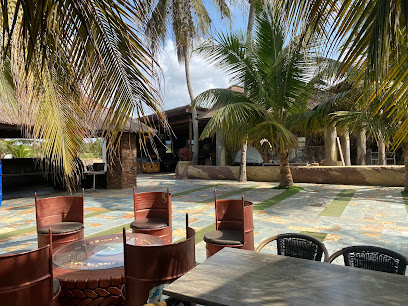
Tsarley Korpey Beach Resort
Discover paradise at Tsarley Korpey Beach Resort - where tranquility meets vibrant culture on Ghana's beautiful coast.

Maks Resort Ada
Discover tranquility and adventure at Maks Resort Ada – your ultimate getaway in Ghana's beautiful Big Ada.
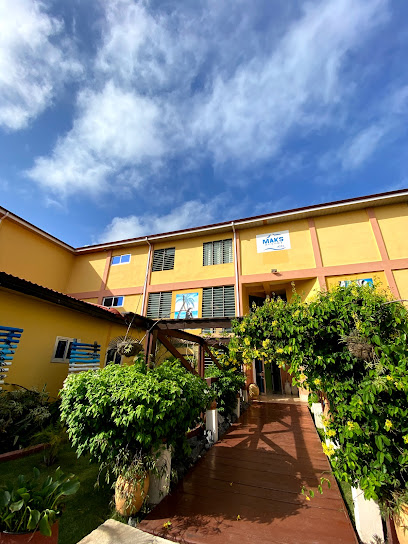
Ezime Guesthouse and Pizzeria
Discover the charm of Ezime Guesthouse and Pizzeria in Ada Foah - where comfort meets delicious cuisine in a picturesque setting.
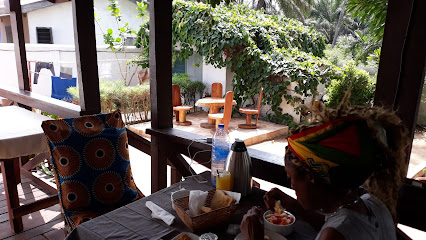
Brightest Spot Restaurant
Discover authentic Ghanaian cuisine at Brightest Spot Restaurant in Ada Foah – where every dish tells a story.
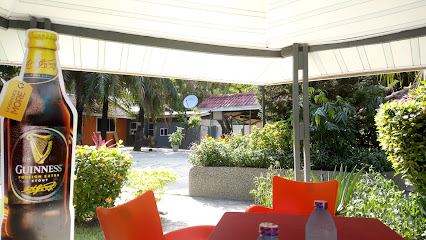
Maranatha Beach Camp
Discover serene beachfront relaxation at Maranatha Beach Camp in Ada Foah – your perfect getaway in Ghana.
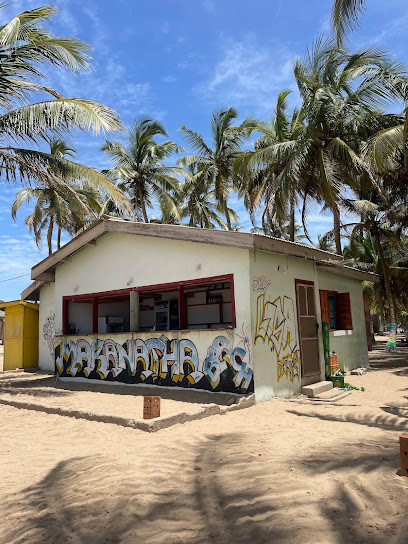
Villanavi Resort
Experience serene getaways at Villanavi Resort: where stunning beachfront views meet exceptional hospitality in Sogakope.
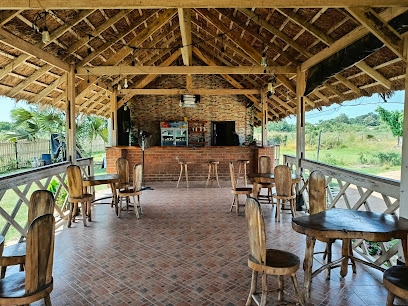
Heartland Hotel
Discover tranquility at Heartland Hotel in Ada Foah – your serene getaway with modern comforts and exceptional hospitality.
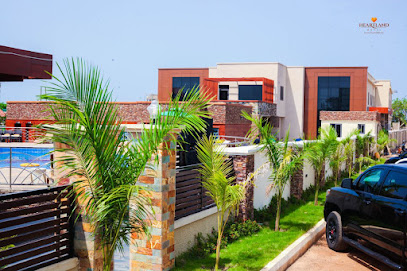
KINGS PUB... BIG ADA
Experience authentic Ghanaian flavors at Kings Pub in Big Ada - a welcoming restaurant that embodies local culture and culinary excellence.
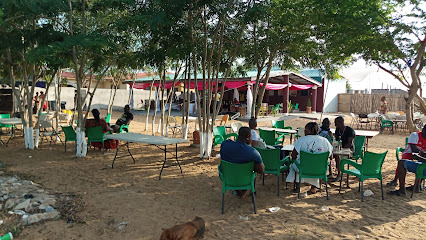
u and i restaurant
Experience authentic Ghanaian cuisine at U and I Restaurant in Anloga—where every meal is a celebration of local flavors.
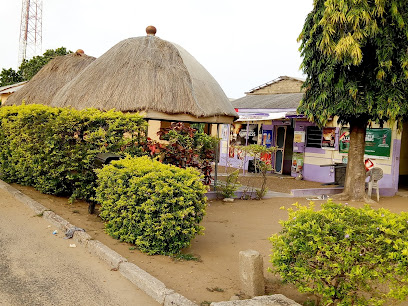
Sunset Restaurant
Experience authentic Ghanaian cuisine at Sunset Restaurant in Krobo Odumasi—where flavor meets tradition amidst stunning views.

Barefoot Beach Bar
Experience the ultimate beachfront retreat at Barefoot Beach Bar in Ada Foah - where relaxation meets vibrant island life.
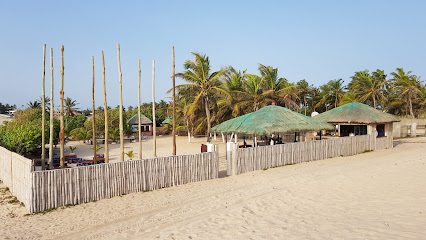
Sorriso Restaurant Ghana
Experience authentic Ghanaian cuisine at Sorriso Restaurant in Tema - where every meal is a celebration of local flavors.
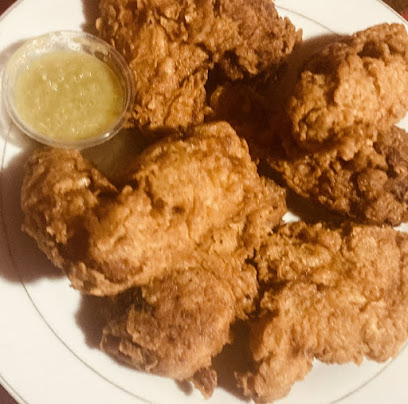
Markets, malls and hidden boutiques
Ada Foah Market
Discover the vibrant Ada Foah Market, a cultural hub in Ghana where fresh produce, local crafts, and community life come together in a lively atmosphere.
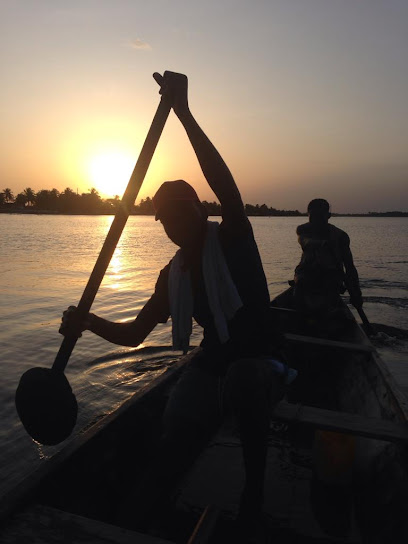
Market
Experience the lively Market of Ada Foah, a vibrant hub showcasing local culture, fresh produce, and unique crafts in the heart of Ghana.
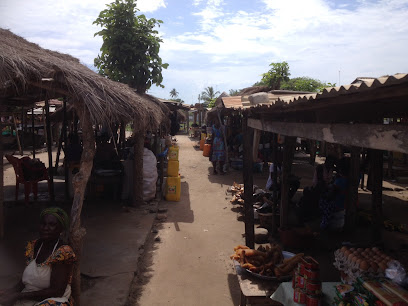
Gods Gift Super Stores
Explore the flavors of Ghana at Gods Gift Super Stores, a local grocery shop in Ada Foah offering fresh produce and unique local products.
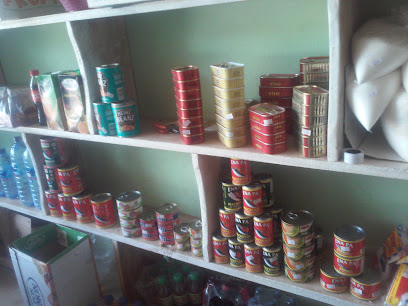
Paid Klodin
Explore Paid Klodin in Ada Foah, a vibrant clothing store blending contemporary fashion with traditional Ghanaian styles for an unforgettable shopping experience.
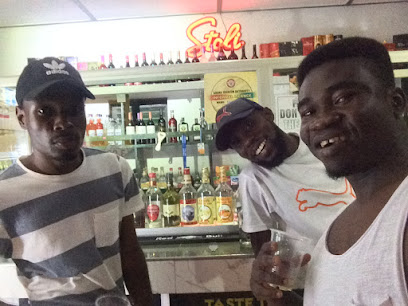
Boxing Supermarket
Discover the essence of local shopping at Boxing Supermarket in Ada Foah, where authentic Ghanaian flavors and products await your exploration.
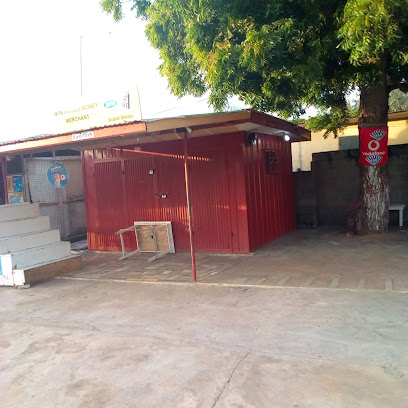
Lynkop
Explore Ada Foah with ease and stay connected with Lynkop, the premier cell phone store offering exceptional service and products.
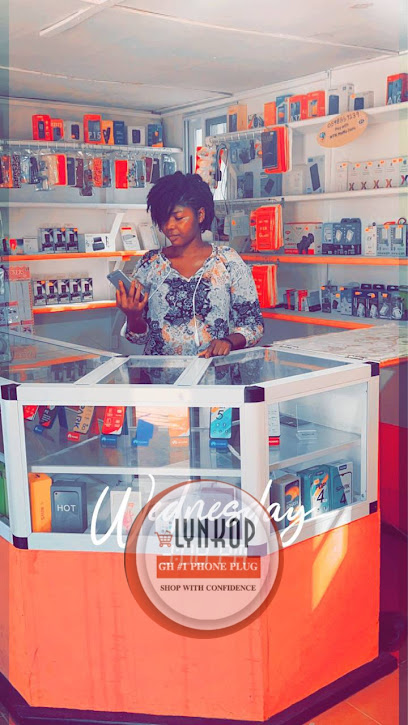
Cindys Fashion Design
Explore unique fashion at Cindy's Fashion Design in Ada Foah, where local styles and quality craftsmanship meet for an unforgettable shopping experience.

His Grace Supermarket (Bulk)
Explore the vibrant flavors of Ghana at His Grace Supermarket, your go-to destination for local and international groceries in Ada Foah.
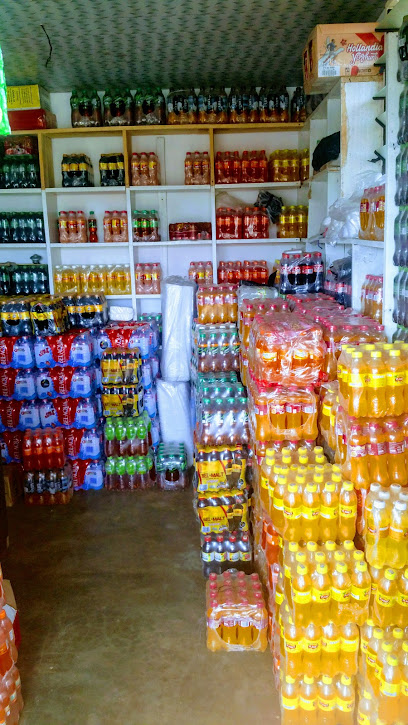
Supreme Electronics And Phones
Explore the latest in gadgets and electronics at Supreme Electronics And Phones in Ada Foah, where reliability meets cutting-edge technology.
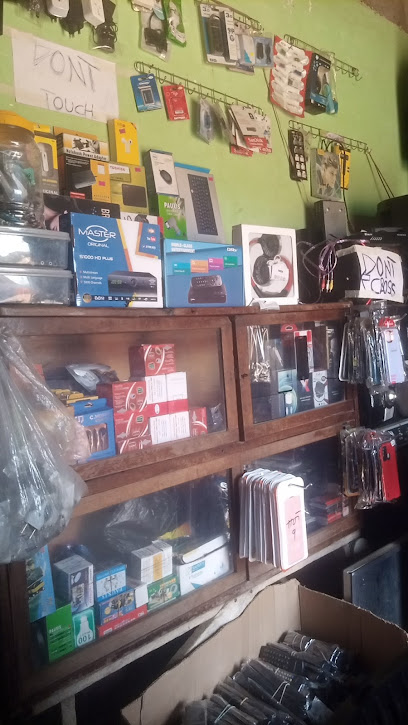
Peaceful Super Market
Experience the heart of Big Ada at Peaceful Super Market, where local flavors and friendly faces await your discovery.

Joyce Boutique
Explore unique Ghanaian fashion and accessories at Joyce Boutique, a charming clothing store in Big Ada offering a taste of local artistry.
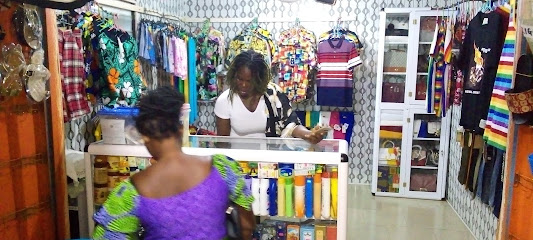
Panama Beach
Discover the beauty of Panama Beach, where sun, sand, and vibrant entertainment create unforgettable experiences on Ghana's stunning coastline.

Peace Akakpo’s House, Big Ada
Explore the rich cultural heritage of Ghana at Peace Akakpo’s House in Big Ada, offering unique handcrafted home goods and decor.

CANOES, SPEED BOATS & KAYAKS RENTALS
Experience the thrill of canoeing, kayaking, and speed boating in Ada Foah's stunning waterways, surrounded by nature's beauty.
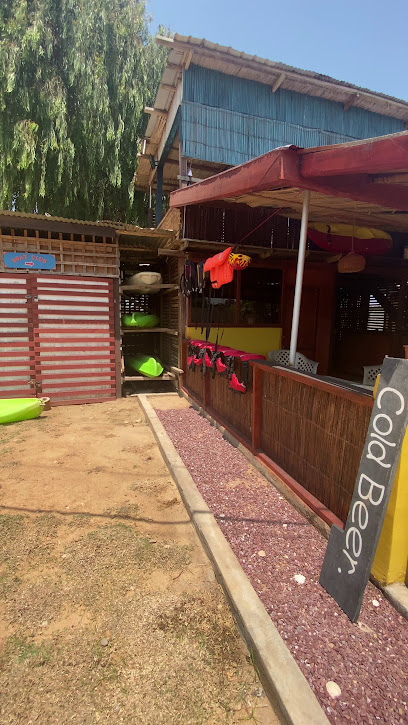
CLASSIC HAIR CUTZ 360
Experience top-notch grooming at Classic Hair Cutz 360 in Ada Foah, your go-to barbershop for stylish cuts and premium barber supplies.
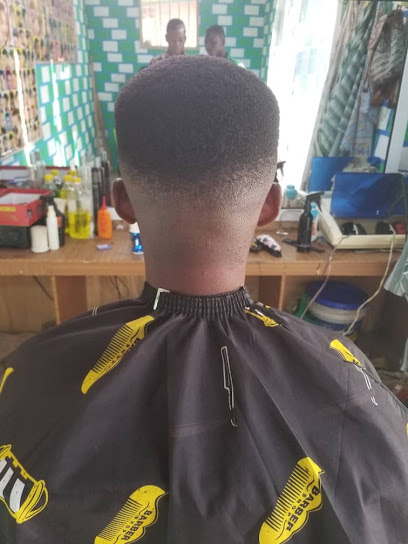
Essential bars & hidden hideouts
The Point Pub
Experience the vibrant atmosphere of The Point Pub in Big Ada, where great food, drinks, and good company come together.
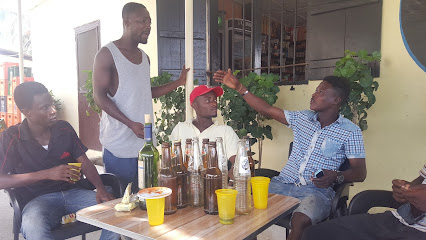
Barefoot Beach Bar
Experience the laid-back vibes of Barefoot Beach Bar in Ada Foah, where refreshing drinks, delicious food, and stunning ocean views await.
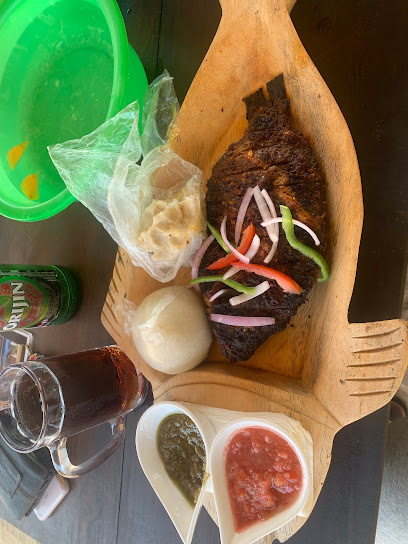
Panama Beach Ada
Discover the vibrant atmosphere of Panama Beach Ada, a lively bar on the beautiful Ada Foah coastline, perfect for relaxation and entertainment.
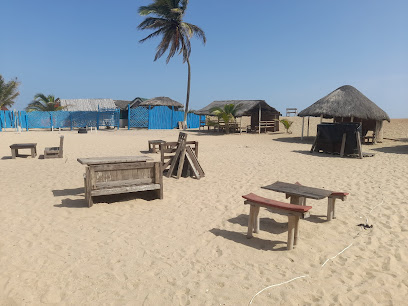
Cool Down Spot
Discover the charm of Cool Down Spot in Ada Foah, where local flavors and a relaxing atmosphere await every visitor.
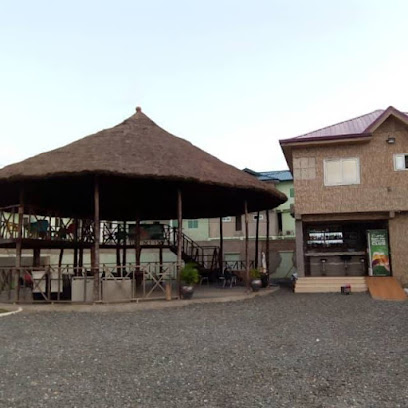
Y's Lounge
Discover the flavors of Ada Foah at Y's Lounge, a grill bar serving delicious grilled meats and seafood in a vibrant atmosphere.
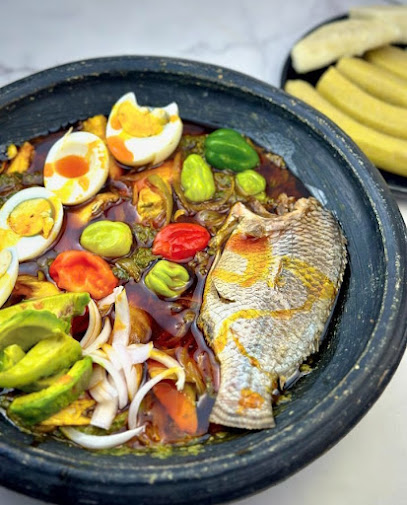
Palace Bar
Experience the relaxed atmosphere and local flavors of Palace Bar in Ada Foah, your ideal coastal retreat.
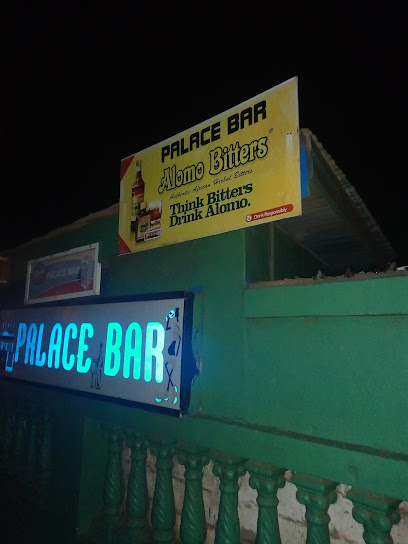
Club Rubstone & Motel
Discover the vibrant nightlife and comfortable accommodations at Club Rubstone & Motel in Ada Foah, your perfect getaway for relaxation and entertainment.

1402 Pub & Restaurant
Experience the vibrant flavors of Ghana at 1402 Pub & Restaurant, a cultural gem in Ada Foah, offering local dishes and a welcoming atmosphere.
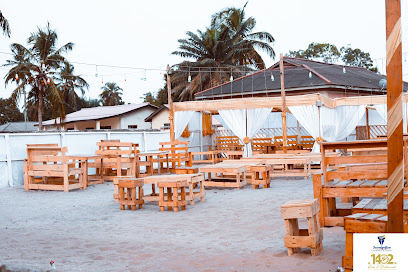
Bar
Unwind at Ada Foah's vibrant bar, where local culture meets exquisite drinks in a lively atmosphere perfect for tourists.
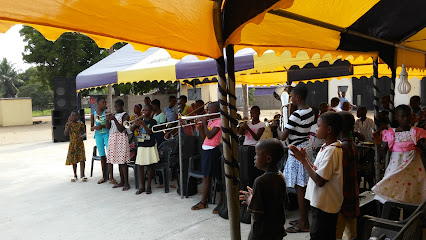
Zion Club
Discover the vibrant nightlife at Zion Club in Ada Foah, where locals and tourists come together for unforgettable fun and refreshing drinks.
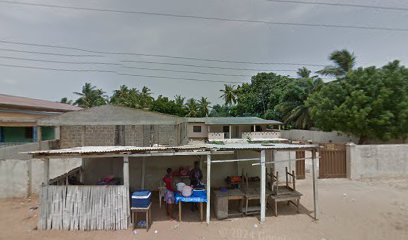
BAR AND LOUNGE
Discover the vibrant atmosphere and delightful drinks at Ada Foah's top bar and lounge, where local flavors meet stylish relaxation.
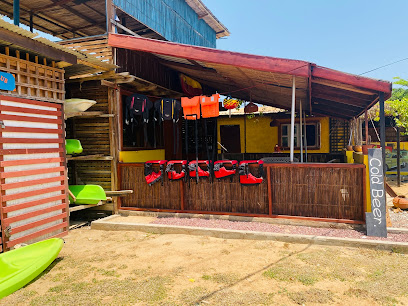
NORMAN’S FOLLY BOAT CLUB
Experience the tranquility and beauty of Norman’s Folly Boat Club, a charming bar in Ada Foah offering refreshing drinks and stunning water views.

Afro Spot
Immerse yourself in the lively atmosphere of Afro Spot, a vibrant bar in Ada Foah offering local drinks and rich cultural experiences.
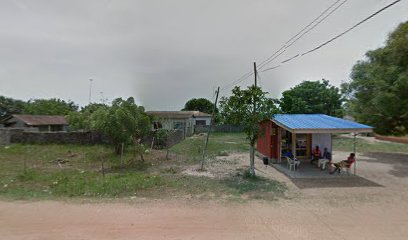
Marita Bar & Restaurant
Discover a vibrant bar experience at Marita Bar & Restaurant in Big Ada, where delicious local cuisine meets refreshing drinks and stunning coastal views.
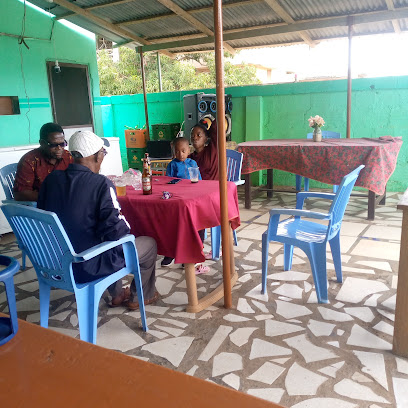
Sarah Baby Pub
Discover the lively spirit of Sarah Baby Pub in Ada Foah, a perfect spot for drinks, entertainment, and local culture.
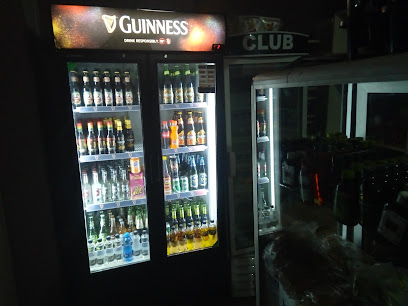
Local Phrases about Ada Foah
-
- HelloAane
[ah-nay] - GoodbyeEraa
[eh-rah] - YesEe
[ee] - NoAayi
[ah-yee] - Please/You're welcomeAane
[ah-nay] - Thank youMedaase
[meh-dah-see] - Excuse me/SorryYaafo
[yah-foh] - How are you?Wo ho te sen?
[woh ho teh sen] - Fine. And you?Adwoa. Na wo te sen?
[ah-dwoh-ah. nah woh teh sen] - Do you speak English?Wo pere Asante?
[woh peh-reh ah-sahn-tay] - I don't understandMe nni ase
[meh nee ah-seh]
- HelloAane
-
- I'd like to see the menu, pleaseMepa menu asa
[meh-pah meh-noo ah-sah] - I don't eat meatMe nni kwan
[meh nee kwahn] - Cheers!Afehyia pa
[ah-feh-hee-yah pah] - I would like to pay, pleaseMepa wo so, asa
[meh-pah woh soh ah-sah]
- I'd like to see the menu, pleaseMepa menu asa
-
- Help!Boa me
[boh-ah meh] - Go away!Kwraa
[kwah-rah] - Call the Police!Kyer3 nsu
[cheh-reh n-soo] - Call a doctor!Kyer3 dokita
[cheh-reh doh-kee-tah] - I'm lostMe nni nsa
[meh nee n-sah] - I'm illMe hu
[meh hoo]
- Help!Boa me
-
- I'd like to buy...Mepa wo se...
[meh-pah woh seh...] - I'm just lookingMe nni hwee
[meh nee hweh] - How much is it?Ayi bii kakra?
[ah-yee bee kah-krah] - That's too expensiveAyi bii y3 mpo
[ah-yee bee yeh m-poh] - Can you lower the price?Wo p3 sika?
[woh peh see-kah]
- I'd like to buy...Mepa wo se...
-
- What time is it?Tena ase
[teh-nah ah-seh] - It's one o'clockWorididi
[woh-ree-dee-dee] - Half past (10)Dikunu (10)
[dee-koo-noo (10)] - MorningAnɔpa
[ah-naw-pah] - AfternoonAwia
[ah-wee-ah] - EveningAnɔpa
[ah-naw-pah] - YesterdayNwentoma
[n-wehn-toh-mah] - TodayNnɛ
[n-yeh] - TomorrowNnɛ
[n-yeh] - 1Edwa
[eh-dwah] - 2Nkron
[en-kron] - 3Mmienu
[mee-eh-noo] - 4Nnanson
[n-nan-son] - 5Nnumɔ
[n-noo-maw] - 6Nsia
[n-see-ah] - 7Nson
[n-son] - 8Nwɔtwe
[n-woh-tweh] - 9Kronkron
[kron-kron] - 10Du
[doo]
- What time is it?Tena ase
-
- Where's a/the...?Ɛhe nipa bi...
[eh-hay nee-pah bee...] - What's the address?Nkyerɛase bɛn?
[n-cheh-reh-ah-seh bane] - Can you show me (on the map)?Wo pɛ sɛ me kɔ (sɛ Wɔteasei)?
[woh peh seh meh koh (seh woh-teh-ah-seh)] - When's the next (bus)?Ɔka ne bus ne?
[oh-kah neh boos neh] - A ticket (to ....)Bi tiket (kɔ ....)
[bee tee-ket (koh ....)]
- Where's a/the...?Ɛhe nipa bi...
History of Ada Foah
-
Ada Foah, located at the estuary of the Volta River, has a history that dates back to the 16th century. It was initially settled by the Ada people, part of the larger Ga-Dangme ethnic group. The strategic location made it an attractive site for trade, fishing, and agriculture. Over time, the settlement grew into a bustling community with a rich cultural heritage.
-
In the 18th century, Ada Foah became an important trading post for European colonial powers. The Danes established Fort Kongenstein in 1783 as part of their efforts to control trade along the coast. The fort served as a hub for the exchange of goods such as gold, ivory, and slaves. Fort Kongenstein still stands today as a historical monument, offering a glimpse into the colonial past of the region.
-
Ada Foah played a significant role during the Trans-Atlantic Slave Trade. The Volta River's access to the interior made it a key point for the collection and shipment of enslaved Africans. Many were held at Fort Kongenstein before being transported across the Atlantic. This dark chapter in Ada Foah's history is remembered and commemorated through various local initiatives and historical tours.
-
After Ghana gained independence in 1957, Ada Foah transitioned from a colonial trading post to a modern Ghanaian town. The post-colonial era saw developments in infrastructure, education, and healthcare. The town has become a popular tourist destination, known for its beautiful beaches, vibrant festivals, and the Ada Estuary, which is a haven for birdwatchers and nature enthusiasts.
-
Ada Foah is renowned for its rich cultural heritage, which is celebrated through various festivals and traditions. The Asafotu-Fiam Festival, held annually in August, is one of the most significant. It commemorates the victories of the Ada people in historical battles and serves as a time for communal bonding, traditional music, dance, and rituals. The festival attracts visitors from all over Ghana and beyond.
-
In recent years, Ada Foah has become a focal point for ecotourism and conservation efforts. The Volta River estuary and the surrounding wetlands are home to diverse wildlife, including endangered species like the West African Manatee and various migratory birds. Local communities and organizations are actively involved in preserving these natural habitats while promoting sustainable tourism practices.
Ada Foah Essentials
-
Ada Foah is located in the Greater Accra Region of Ghana, approximately 100 kilometers east of Accra. The nearest international airport is Kotoka International Airport in Accra. From Accra, you can take a taxi or a private car hire to Ada Foah, which typically takes around 2 to 3 hours by road. Alternatively, you can take a trotro (shared minibus) from the Tema Station in Accra to Ada Foah, which is a more economical option.
-
Ada Foah is a relatively small town, and many attractions are within walking distance. For longer distances, local taxis and motorbike taxis (okadas) are readily available and affordable. Trotros also operate within the town and connect to nearby areas. Renting a bicycle can be a fun and eco-friendly way to explore the town and its surroundings.
-
The official currency in Ghana is the Ghanaian Cedi (GHS). Credit cards are accepted in some hotels, restaurants, and shops, but it is advisable to carry cash, especially in smaller establishments and rural areas. ATMs are available in Ada Foah, but it is wise to withdraw sufficient cash in Accra before traveling to ensure you have enough funds.
-
Ada Foah is generally a safe destination for tourists. However, like any travel destination, it is advisable to take standard precautions. Avoid walking alone at night in unfamiliar areas and keep an eye on your belongings in crowded places. While there are no specific high-crime areas targeting tourists, it is always best to stay vigilant and aware of your surroundings.
-
In case of emergency, dial 191 for police assistance or 193 for medical emergencies. The local police station and medical facilities are available in Ada Foah. It is recommended to have travel insurance that covers medical emergencies. For minor health issues, there are pharmacies in the town where you can purchase over-the-counter medications.
-
Fashion: Do dress modestly, especially when visiting religious sites. Avoid wearing revealing clothing. Religion: Do respect local customs and traditions. Always cover your head when entering churches and mosques. Public Transport: Do be respectful and give up your seat to elderly passengers. Don't eat or drink on public transport. Greetings: Do greet people with a handshake and a smile. A slight bow of the head is also a sign of respect. Eating & Drinking: Do try local delicacies and accept food offerings graciously. Don't refuse hospitality, as it is considered impolite.
-
To experience Ada Foah like a local, visit the local markets where you can buy fresh produce and traditional Ghanaian goods. Engage with locals, as they are often friendly and willing to share stories about the town's history and culture. Don't miss visiting Big Ada and the estuary where the Volta River meets the Atlantic Ocean. For a unique experience, take a boat tour on the Volta River, offering breathtaking views and a chance to see the local wildlife.
Trending Landmarks in Ada Foah
-
Songor Lagoon Protected Area
-
Treasure Island Ghana
-
Maks Resort Ada
-
NKYINKYIM MUSEUM
-
Ezime Guesthouse and Pizzeria
-
Maranatha Beach Camp
-
Treasure island departure
-
Kumoji Guest House
-
Camp Tsatse Resort
-
Treasure Island, Ada.
-
Ada-Foah
-
DREAMLAND BEACH RESORT
-
Y's Lounge
-
Volta Estuary, Ada Foah
-
Fort Kongenstein
Nearby Cities to Ada Foah
-
Things To Do in Accra
-
Things To Do in Ho
-
Things To Do in Koforidua
-
Things To Do in Aneho
-
Things To Do in Kpalimé
-
Things To Do in Notse
-
Things To Do in Lokossa
-
Things To Do in Ouidah
-
Things To Do in Atakpamé
-
Things To Do in Cotonou
-
Things To Do in Cape Coast
-
Things To Do in Porto-Novo
-
Things To Do in Kumasi
-
Things To Do in Sekondi-Takoradi
-
Things To Do in Takoradi







